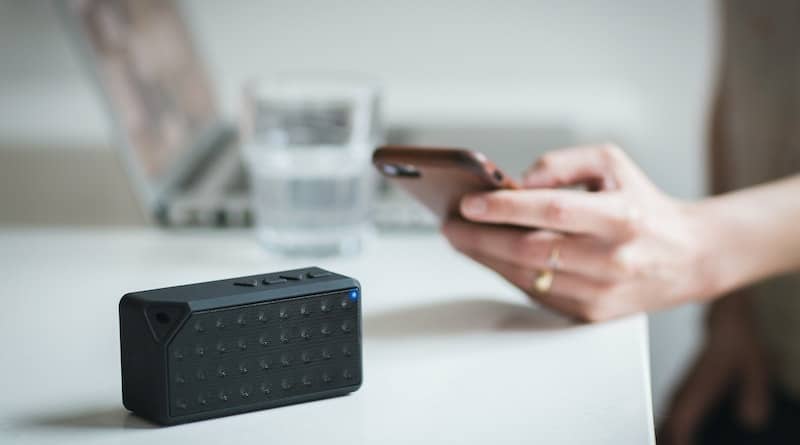Wi-Fi Protection for Your Sacred Online Spaces
Wi-Fi Protection is crucial for criminal activity. It’s your responsibility to secure your internet at home. Someone might steal your signal or use it for bad things, but you can take practical measures to safeguard your online space. With the right tools and knowledge, protect your Wi-Fi network from unauthorized access, prevent suspicious behavior, and align your connection with your beliefs and values.
Don’t Broadcast Your SSID
What is SSID? Well, the SSID (Service Set Identifier) of your Wi-Fi network is the name that shows up when someone looks for open networks to connect to. If you turn off SSID broadcasting, other people won’t be able to see your network, and they won’t be able to join it without knowing the name. But it’s important to remember that turning off SSID sharing might not give you full security. But with the right tools, hackers can find hidden networks and connect.
Stop Wi-Fi Misuse with MAC Address Filtering
You probably know what an IP address is. IP numbers give space on a network to something. But there is also something called a MAC address, which is a code that is unique to each device. With MAC Address filtering on your Wi-Fi network, you can make a list of devices that are allowed to join your network. Filtering is a good way to stop devices that shouldn’t be on your network from doing so. But MAC numbers can be “spoofed” to look like they are another’s.
Make Sure WPA2 is Enabled
WPA2, or Wi-Fi Protected Access II, is the most secure security system for Wi-Fi networks right now. By turning it on, you can make sure that no one else can get into your network. It gives wireless communication a high amount of safety. Enabling WPA2 on your Wi-Fi network makes sure that all data sent between devices on your network is encrypted and safe. This makes it hard for people who shouldn’t be able to access your network information to intercept any data.
Change Your Wi-Fi Password
The most straightforward way to stop people from using your Wi-Fi for things like podcast streaming is to change your Wi-Fi password. Here are few tips for making a good password:
- Make the password as long as possible but short enough to remember.
- If you must write it down, make physical access to the password difficult.
- Don’t use words and phrases, as these can be guessed by people and code breakers.
- Change your password often, such as every month or week, if you need to.
- Use a tool like LastPass to generate a strong and long password of unique characters.
- A strong password is essential. It’s worth noting that weak passwords are much more vulnerable to guessing and can be easily cracked by hackers using automated tools such as Crackstation.
- Reduce the Range of the Signal
If your Wi-Fi connection is strong enough to reach outside your home, you may want to lower the range so that it only covers your property. This will make it harder for people to join from the outside. Most routers have a setting that lets you change the broadcast power, which you can do to make the Wi-Fi signal weaker and less spread out. You could also use range extenders or digital meshes, which let you set up various access points with different range areas.
Enable a Guest Network to Stop Wi-Fi Misuse
Some study says that at any given time, there are 4.9 billion people using the internet. So, it’s possible that everyone in your home needs internet access for some reason or another. Many routers, luckily, let you set up a different guest network so that guests can use the internet without being able to access your main network. This can be a good way to keep certain people from using your household Wi-Fi without making things hard for your trusted friends and family.
Monitor Your Home Network
Some routers allow you to monitor the devices that are connected and how they are being used. Regularly checking on your Wi-Fi network is an important step to keep it secure. If you discover any suspicious behavior or unauthorized devices, you can take actions such as disabling SSID broadcasting, changing your Wi-Fi password, or consulting with your internet service provider for professional help.
It’s important to prevent Wi-Fi misuse in your home since you are responsible for all activities that take place over your network. To protect your Wi-Fi network, you can take practical measures such as monitoring your network and restricting access to only authorized devices. By being vigilant and taking appropriate actions, you can safeguard your online sanctuary from potential threats.
Sources
- Federal Trade Commission: Protecting Your Wireless Network: https://www.consumer.ftc.gov/articles/0013-securing-your-wireless-network
- Norton: How to Secure Your Wi-Fi Network: https://us.norton.com/internetsecurity-privacy-how-to-secure-your-wi-fi-network.html
- Cybersecurity & Infrastructure Security Agency: Securing Wireless Networks: https://www.cisa.gov/publication/securing-wireless-networks
- Lifewire: How to Prevent Wi-Fi Theft: https://www.lifewire.com/how-to-prevent-wifi-theft-2487651



